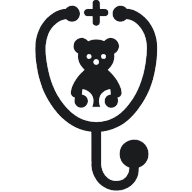4 Ways to Cope When Feeling Overwhelmed by Your Child’S Illness
Dealing with a child's illness can be an overwhelming experience for any parent. This article offers expert-backed strategies to help navigate this challenging time. From self-care techniques to building a support network, discover practical ways to cope and find strength during your family's medical journey.
- Give Yourself Permission for Self-Care Breaks
- Focus on the Present Moment
- Prioritize Self-Care and Open Communication
- Celebrate Small Victories and Build Support Network
Give Yourself Permission for Self-Care Breaks
I'd encourage parents to give themselves permission to take breaks, even small ones. Your well-being matters just as much as your child's health. Ignoring your own needs can lead to caregiver burnout, which takes a toll on both you and your ability to care for others. Don't hesitate to reach out, whether to a trusted friend or a support group. Sharing your experience and hearing others' stories can remind you that your feelings are normal and valid. Needing a break or feeling overwhelmed doesn't make you a bad parent; it makes you human. You're doing your best in an incredibly tough situation.

Focus on the Present Moment
Take it one hour at a time.
When your child gets sick, everything shifts. Your mind jumps to worst-case scenarios. You forget to eat. You cancel plans. You stop sleeping. I've been there. I kept thinking I had to stay strong and had to have answers. But what helped me most was shrinking my focus. I asked myself, "What does my child need right now?" Not tomorrow. Not next week. Just now. That shift helped me breathe. It helped me show up without getting lost in the panic.
I stopped pretending I was fine. I told a couple of close friends I was overwhelmed. No long texts. No dramatic stories. Just honest words. The people who care will meet you where you are. One friend dropped off groceries. Another called to check in. Those small things mattered more than advice. You don't need a crowd. You need two or three people who won't wait to be asked. Let them in.
You're not expected to be perfect. You're not supposed to have it all together. Your presence is what your child needs most. Even if you're tired. Even if you're unsure. Show up. That's enough. Keep going.

Prioritize Self-Care and Open Communication
After interviewing hundreds of parents on the Child Life On Call podcast about what it's like to have a child with an illness, three common truths continue to stand out:
1. Self-care feels impossible, but it's essential.
Taking care of yourself during your child's health journey often falls to the bottom of the list, but even the smallest moments—stepping outside for fresh air, taking a short walk, or stretching—can make a big difference in your ability to keep going.
2. Open communication with your child's doctor is vital.
You are the expert on your child. Trust your gut, ask the questions on your mind, and know that your instincts matter just as much as the medical advice you receive.
3. Sometimes "day by day" is too much—try moment by moment.
When everything feels overwhelming, narrowing your focus to just the next moment can help bring clarity, calm, and presence.

Celebrate Small Victories and Build Support Network
When my child was seriously ill, the overwhelming feelings felt constant and exhausting. One piece of advice I'd give to parents in that situation is to focus on small, manageable moments rather than the whole journey at once. For me, breaking the day into smaller parts—like celebrating a good meal or a peaceful nap—helped me stay grounded. What really helped was building a support network; I reached out to other parents going through similar challenges and leaned on close friends and family for practical help and emotional support. I also made time for self-care, even if it was just 10 minutes of quiet or a short walk, to recharge. It's important to remember that it's okay to ask for help and to take care of yourself so you can be there fully for your child. Those small moments and connections made a huge difference in coping through the toughest times.


